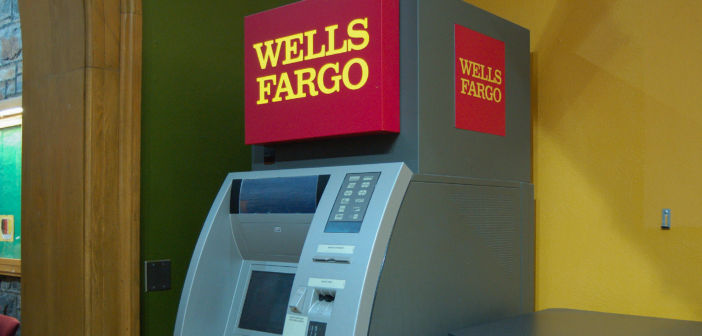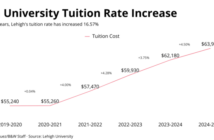For some students, college is the first time they have to manage their own money. Throughout their time at Lehigh, students have to learn how to budget their money and spend and save responsibly.
Mary Rose Heller works at Lehigh’s Wells Fargo Bank branch on the second floor of the University Center. She said students often run into trouble from solely relying on a debit card for all transactions.
“Students use their debit cards for everything and don’t regularly check their account statements,” Heller said. “Then, when they actually decide to look at their balance, there’s nothing left. That’s when they come to see us. It seems to be happening more and more every day.”
Kathy Martinez, also an employee at Lehigh’s Wells Fargo branch, said debit cards aren’t bad, but rather they should be used properly and responsibly.
“It’s simple – log onto your (checking) account every day,” Martinez said. “Make sure nobody has used it, and make sure that nobody accidentally double swiped your card. If you can’t do that, take out cash.”
Both stressed how important it is to continuously track money, and how it’s absolutely crucial to keep some cash present at all times. They agreed it’s much easier for students to budget money if they can physically open their wallets and see that funds are limited.
Heller said between smartphone technology and apps, it’s becoming much more difficult to keep track of money.
“We know that apps like Venmo and Google Wallet are prevalent on campus,” Heller said. “What students don’t know is that a lot of times these apps take time to process transactions. It could take hours, up to days, for the money to actually be deducted from the student’s account. Then, even if they do look at their account statement, they think they have more money than they actually have.”
Heller said checks take time to process, too. She said many students come into the bank for the first time not knowing how to write a check.
Checks are still used to pay rent and bills, but they’re becoming obsolete in today’s generation. Heller said students should learn how to write a check and the implications of doing so. It might take a few days for the check to be cashed, so students should be mindful of that while shopping.
Even with the negative implications of electronic banking, both Heller and Martinez said there are ways to avoid the financial pitfalls that electronic payment can cause.
When a student chooses to open an account, Martinez does not issue a service charge if the student opens both a savings and checking account. Martinez and Heller said they’ve seen great financial stability in students who have both accounts.
Martinez said she advocated a new app specific to Wells Fargo cardholders that reminds young people to be mindful of their money. The app tracks how much money the user spends and what they spend it on. The bank categorizes transactions, and then notifies the user if too much money is spent in one category.
Lehigh students have developed their own strategies to remain financially stable. Phoebe Lindo, ’20, has taken advantage of campus resources to help.
“When I came to college, I budgeted the money I had saved from high school pretty well,” Lindo said. “Now, working at the Women’s Center for work-study, I’m doing the same. Working has always helped me to keep mindful about money. Exam time is tough, though. That’s when I want to eat out the most, and the money goes really fast.”
Lindo said having a savings and checking account has been really helpful. She said it’s even better if the saving account is hard to access.
Kate Hickey, ’17, said learning to budget money was hard, but it’s something that comes with time. She said she used to spend more money than she had, and she had to learn to say no to going out and drinking when she turned of age because it gets so expensive. Like Lindo, Hickey said a savings account is an absolute must.
“Sometimes the best thing to do is to put yourself in your parents’ shoes. Dining food isn’t the best, but if they’re paying for a meal plan, you should definitely use it,” Hickey said.
Hickey also said summer internships are helpful in adding to a saving account. She said it’s possible to learn to budget properly, healthily and effectively.






Comment policy
Comments posted to The Brown and White website are reviewed by a moderator before being approved. Incendiary speech or harassing language, including comments targeted at individuals, may be deemed unacceptable and not published. Spam and other soliciting will also be declined.
The Brown and White also reserves the right to not publish entirely anonymous comments.